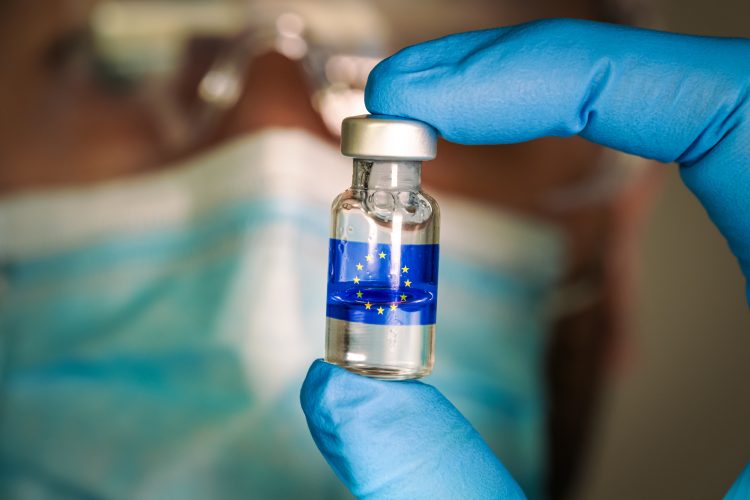Interchangeability of biosimilars in the EU – the industry impact
Posted: 19 December 2022 | Chris Boyle (Sidley Austin LLP), Marie Manley (Sidley Austin LLP) | No comments yet
In a reversal of approach, EU medicines regulators have for the first time published a statement supporting the interchangeability of biosimilar medicines in the EU. Here, Marie Manley and Chris Boyle from Sidley Austin LLP explore what this could mean for biopharma companies.


A biosimilar is a biological medicine ‘similar’ to another biological medicine already approved in the EU (the ‘reference medicine’).1 However, as most biosimilars are developed by means of a complex biotechnological process in living organisms, this inevitably leads to differences between the biosimilar and the reference product. Biosimilars therefore do not qualify as copies (or ‘generic’ versions) of the reference product.2
For this reason, a unique ‘abridged’ procedure was introduced to provide a specific regulatory pathway for biosimilars in the EU.3 Under this pathway, comparability studies are required to substantiate the similar nature, in terms of safety and efficacy, of the biosimilar and the reference product.4 However, in some cases, comparative data may not be required across all therapeutic indications and may be extrapolated to other indications already approved for the reference medicine.4 Due to the unique and complex nature of biosimilars, the European Medicines Agency (EMA) emphasises that the assessment of biosimilars necessitates a case-by-case approach.
Are biosimilars interchangable?
The question of whether biosimilars are interchangeable – and possibly even automatically substitutable at pharmacy level – remains a national prerogative, rather than one that can be mandated at an EU-level, as noted in the EMA’s guideline:4
The recent joint statement on the interchangeability of biosimilars…though non-binding, highlights nevertheless a significant change in approach by the regulators”
The recent joint statement on the interchangeability of biosimilars issued by the Biosimilar Medicines Working Party of the EMA and the Biosimilar working group of the Heads of Medicines Agencies (HMA), though non-binding, highlights nevertheless a significant change in approach by the regulators.6
By issuing a scientific recommendation applicable to all biosimilars, the assumption of many stakeholders will now be that biosimilars are interchangeable. However, this ‘one size fits all’ approach is a departure from the more cautious approach of assessing the interchangeability of biosimilars on a case-by-case basis.
Although the joint-statement is said to be necessary owing to the “uncertainty among stakeholders on the use of biosimilars in clinical practice”, a 2021 report by IQVIA found that the volume of biosimilar prescribing across the European Economic Area generated €5.7 billion in list price savings in 2020 (excluding confidential rebates and discounts).7 Furthermore, the report noted a more rapid penetration by biosimilars in the market “[b]iosimilars launched in the past year have reached 50% penetration of the originator within less than 1-year, while previous molecules took over 2-years to reach an equivalent position”.7
European regulators have led the way for the development of biosimilars in the past, with 86 approvals granted since 2006″
European regulators have led the way for the development of biosimilars in the past, with 86 approvals granted since 2006. The scientific rationale underlying the joint statement is presented as relying on 15 years’ experience with biosimilars applications and safety monitoring, where approved biosimilars have demonstrated comparable efficacy, safety and immunogenicity with their reference products. Furthermore, the joint statement cites examples of successful switch of biological medicines manufactured and commercialised by different companies, which is stated to have become “common in clinical practice”. Nonetheless, some stakeholders remain concerned with this new approach given the complexity of biological medicines and the need for patients to be treated individually and have called for further discussions with regulators and all stakeholders.
What are the concerns about the interchangeability of biosimilars?
Some commentators have suggested that the joint statement may provide some additional comfort to those prescribers considering switching patients to a biosimilar”
Some commentators have suggested that the joint statement may provide some additional comfort to those prescribers considering switching patients to a biosimilar, not least from a liability perspective, which has the potential to affect prescribing practices. They have suggested that prescribers may be even more inclined to switch patients to a biosimilar if they are encouraged by national authorities to do so, or even incentivised by them to do so, as may be the case in some countries. Critics have questioned whether this is a false comfort as prescribers will have to ultimately assess whether a specific biosimilar is, in fact, interchangeable. In order to continue to protect patient health, national health authorities will have to ensure that clear guidance is issued, and switches are not encouraged in circumstance where it would not be appropriate for patients.
While the joint statement recognises that ‘substitution’ remains a prerogative of the Member States, it also highlights that more can be achieved at national level.
The big question for biopharma companies is to what extent the joint statement will trigger national authorities to go further”
The big question for biopharma companies is to what extent the joint statement will trigger national authorities to go further and implement legislation and/or guidance providing for automatic substitution between reference products and biosimilars, or whether potential safety concerns expressed by some stakeholders will prevail. For example, such proposals have recently been announced in Finland where the measures are aimed at improving the cost efficiency of the supply of medicines8 and the UK has amended its guidance9 to reflect the position in the joint statement. Such measures would be likely to have a significant economic impact on the biosimilars market enabling even more rapid uptake of biosimilars after they enter the market, but with possible adverse consequences to the attractiveness and sustainability of developing innovative biological medicines in the EU.
About the authors




Chris Boyle is a life sciences lawyer and qualified veterinarian who advises and litigates in the highly regulated fields of human and veterinary medicinal products, medical devices, food and feed. Chris was named a ‘Rising Star’ in the 2022 Legal 500 Rankings for Life Sciences and Healthcare. In addition to his advisory and litigation work, Chris supports complex life sciences corporate transactions and private equity deals. Chris’s practice for biopharma and pharma clients includes advising on the complex regulatory frameworks and the availability of valuable IP regulatory rights such as orphan‑drug market exclusivity, paediatric rewards, SPCs and regulatory data protection rights.
References/Endnotes
- Biosimilars in the EU. Information guide for healthcare professionals, EMA and EU Commission updated 2/10/2019.
- This is reflected in the legal basis for biosimilars under Article 6 of Regulation 726/2004 and Article 10(4) of Directive 2001/83 (as amended by Directive 2004/27).
Directive 2001/83 (as amended). - EMA Guideline on Similar Biological Medicinal Products, 23 October 2014,
- CHMP/437/04 Rev 1.
- EMA Biosimilars Q&A.
- EMA Statement on the scientific rationale supporting interchangeability of biosimilar medicines in the EU. 2022.
- The Impact of Biosimilar Competition in Europe, IQVIA, December 2021.
- Statement request: VN/15072/2022. Lausuntopalvelu.fi. [Internet] Available at: https://www.lausuntopalvelu.fi/SV/Proposal/Participation?proposalId=d1139b23-f3ac-4cf2-9088-9f848f61854d.
- MHRA. Guidance on the licensing of biosimilar products, May 2021. Available at: https://www.gov.uk/government/publications/guidance-on-the-licensing-of-biosimilar-products/guidance-on-the-licensing-of-biosimilar-products.








